The Psychology of Questions, an Interview with Marc Champagne
Celebrities, artists, and other larger-than-life characters provide a common source of inspiration. People aspire to “be like Mike”, to invest like Warren Buffet, or lead like Martin Luther King Jr.
But how can we get the most out of these incredible figures?
In his new book, Personal Socrates, Marc Champagne profiles the life work of 38 high-performing figures, ranging from Kobe Bryant, to JRR Tolkein, to Coco Chanelle. But crucially, instead of providing their biographies and accomplishments, he implores us to connect with them in a deeper way: by reflecting on the key questions that their lives inspire.
In this interview, we discuss this unique approach, the psychology of asking the right questions, and how we can inject a bit of ancient wisdom into our modern existence.
Many books, especially those that are aimed at self-improvement, promise all the right answers. Your book focuses on questions. Why did you take this approach?
Questions have always served a huge place in my life. In the sense that I'm learning from other people that are leaving really powerful questions, and people who have reflected on powerful questions throughout their lives.
I believe that when we come to insights on our own, we've got a much higher probability of actually sticking to the change. There’s a power to us coming to the solution ourselves. There are obviously situations where a recipe for something is valuable. But when you get into bigger questions of life, you need to go deeper.
I also think that questions inspire other questions. Oftentimes, it’s the questions you ask yourself after the first question that has the biggest impact, and produces the most significant insights. And this again comes back to the fact that questions lead you to probe deeper, beneath the surface. You actually get to the core of what you're trying to sort out. Importantly, what you're left with is an answer that makes sense to you, not to whoever's giving you that advice.
Your book chronicles so many incredible athletes, celebrities, and high-performers. Who surprised you the most? Who was most difficult?
Jane Austin comes to mind here. I came to the research with some understanding of her work, but knew little about her specifically. I didn't know, for example, that she didn’t become recognized for her work until 50 or so years after her death.
All the profiles are set up in this way, with the intention of taking someone like Jane Austin and reflecting back our own life. We can ask ourselves, where am I at? Is there something I can use to inspire some reflection and some thought in my own life or in my own work?
For me, Jane Austin was a very inspirational point of reflection. When I looked at her legendary novels and award-winning work, I was taken aback. There are literally hundreds of thousands of people still talking about her work, and fan groups all over around the world.
One of the elements I found so fascinating was the fact that there are multiple characters within her novels who come together in forming an awesome story. So for me, it made me ask myself: Who makes up my story? What characters have been involved to get me to the point I'm at right now and my journey? And then I think, even more importantly, what do those next chapters of my story look like? Because the next chapter will be written. It's just whether I write it or someone else writes it. So I really enjoyed that one.
My personal favorite in the book was Pablo Picasso. I’m curious what your experience was like when writing that profile.
That's another one that I got a lot of value out of writing, especially looking at his art and how it morphed and transformed over the years. When you're in a Picasso museum or you see one of his pieces individually that's one thing. But if you actually zoom out and see the whole body of work, which is what makes Picasso Picasso, you can see these dramatic shifts.
I didn't realize this until going into the research, but there's this whole blue phase of his work around his best friend’s suicide. Then when he met his wife, he flipped into the rose-colored phase of his work: the colors are more cheerful and people are upright and all the faces are happier. If you go back and look at all of those pieces, you could see how these artistic expressions are grounded in that phase of his life.
And this is what I found most interesting in my own life. He’s human, just like the rest of us. And when we look, I think we can see the same kind of ‘coloring’ in our own lives; these chunks of 5 to 10 years, you could assign a color. There’s no right or wrong, but it’s something we naturally do to a certain extent anyway. And then when we reflect across all of these color phases you can see much more clearly the elements that contributed to these shifts and evolutions. It also, I think, allows us to take a more intentional set of actions to the next phase of life.
It seems that journaling, in general, is a very important element of your approach.
When most people think of journaling, they tend to get caught up in the methodology. They’ll first think of “pen to paper”, or various journaling apps. You can leave yourself an audio note, or call a friend. There are many ways to go about it.
But whatever the method, the core of the practice is actually slowing down, thinking, and reflecting. It’s through this that you can open up a whole other world of possibility. For example, you can take a walk, in silence with a question. You can think deeply about it, stay with the emotions, and carefully process the decisions.
And we can ask ourselves: are we reflecting from a place where we're trying to be more intentional or are we just asking surface-level questions and navigating on autopilot? That's really what I'm trying to get out there - to have a question land with someone based on where they're at in their life right now. For one person, maybe that's Picasso, for someone else, maybe it’s someone completely different. But the quality of the question is dictated by the timing of when it lands, and who it lands for.
How do you view mental fitness in relation to social media use?
I think mental training is a lot like physical training. An Olympic athlete is rightly focused on both. To me, social media is like the event you’ve been training for. If we have good mental fitness training, then we have less of a chance of getting sucked into these infinity scrolls and loops and getting overstimulated by the content. We’re in a position to be able to step back and acknowledge what’s happening. I think that's the big thing.
What I've picked up the most over all the interviews over the years is that every one of these humans are taking the time to think and pause and examine other areas of their life. This allows you to zoom up to the 40,000-foot view, above the mess of the situation.
One profile that comes to mind here is James Clear. The core idea here is that you're constantly going through a process of understanding who you're optimizing to become. So if you're clear on who you want to be and what that looks like, you can easily see what habits and systems are in place to support you in getting there. Is spending three or four hours a day on social media bringing you closer to that person or pushing you farther away? Maybe for some, this is a ‘yes’, but for most of us, it’s probably a ‘no’. It's up to us to make a decision to course correct.
Photo by Kael Bloom on Unsplash
About Marc Champagne
Marc Champagne unpacks the mental fitness practices and reflection questions shaping the lives of some of the most successful and brilliant thinkers in the world. He’s the host of the top 50 podcast Behind The Human with 200+ interviews, and the co-founder of the journaling app KYO, reaching close to 90 million people around the world. He has studied mental fitness practices for over a decade and has consulted for top-rated digital journals and wellness companies.


